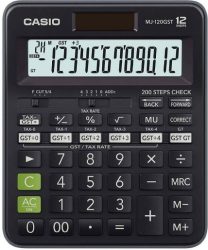While inflation can erode your savings, you can maintain or even increase their value with profitable investment options
 Most of us save a part of our income that can be used for various purposes. In the long-term, savings are primarily meant to finance our retirement period. In the present times, you need to have savings of minimum Rs 1 crore to fulfill your financial needs in the long-term. Apart from retirement funds, you also need to consider things like medical emergencies, children’s education, decent living, etc.
Most of us save a part of our income that can be used for various purposes. In the long-term, savings are primarily meant to finance our retirement period. In the present times, you need to have savings of minimum Rs 1 crore to fulfill your financial needs in the long-term. Apart from retirement funds, you also need to consider things like medical emergencies, children’s education, decent living, etc.
To make it work, you have to include the inflation into your calculations. As years pass by, the value of your savings will continue to decrease due to inflation. To get a better idea, let us take a look at what will be the value of Rs 1 crore by 2050.
Calculating value of Rs 1 crore by 2050 with 6% inflation
In India, the current inflation rate is around 5.5%. As it keeps fluctuating, let us assume an upper limit of 6% that will be applicable as an average till 2050. To calculate the value of Rs 1 crore by 2050, we need to use the compounding method. With this approach, we can calculate the cumulative effect of inflation over a given period of time. The formula is Present Value / (1 + Inflation Rate)ⁿ. In this formula, (1+Inflation Rate) is calculated to the power the number of years to get the compounding effect.
In our example, we have taken the current value as Rs 1 crore and inflation rate of 6%. Using the formula, we can calculate the value of Rs 1 crore over various years.
Value of Rs 1 crore in 10 years = 1 crore / (1+6/100)10. Doing the calculation, we see that the value of Rs 1 crore after 10 years will be approximately Rs 55.84 lakh.
Value of Rs 1 crore in 20 years = 1 crore / (1+6/100)20. The final result is approximately Rs 31.18 lakh.
Value of Rs 1 crore by 2050 = 1 crore / (1+6/100)25. After 25 years or by 2050, the value of Rs 1 crore will be just Rs 17.41 lakh.
What causes inflation?
It is evident that inflation can significantly erode the value of our savings. Various factors can cause inflation such as increased demand for goods and services, higher population growth, expenses on infrastructure development, wage increase, increase in money supply, etc. Inflation is not that bad if it is controllable and at lower levels. Developing countries like India usually have higher inflation in comparison to developed countries. In India, the rising population, dependence on oil imports and rapidly expanding infrastructure development have been contributing to inflation. However, with strict measures, the inflation has been contained in most parts and is at manageable levels.
Diminishing purchasing power
A better idea about the overall impact of inflation can be gained from historical income and prices. For example, gold was available at Rs 99 for 10 grams in 1950. As of now, gold prices have risen to around Rs 78,000 for 10 grams. This shows that things that were relatively cheaper earlier have now become a lot more expensive. That is how inflation works.
Earlier, we have shown the value of Rs 1 crore by 2050. In a similar way, we can also go into the past and see how the value of 1 crore has changed over the years. For example, an individual with Rs 1 crore in 2004, will have the overall value at just Rs 38 lakh in 2024. Similarly, 1 crore 30 years ago in 1994 is now worth only around Rs 23.2 lakh.
How to maintain or increase the value of your savings
There are various investment options you can consider to maintain or increase the value of your savings. Safe and reliable options include government bonds, blue chip equity stocks, mutual funds and precious metals like gold silver. Real estate investment can also work if there is ample value appreciation or high rent potential. To know more about the various investment options, you can click on this link.
 Newspatrolling.com News cum Content Syndication Portal Online
Newspatrolling.com News cum Content Syndication Portal Online







